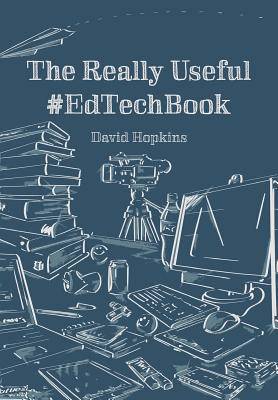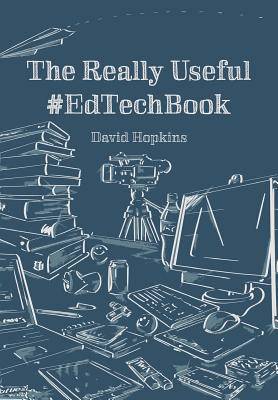
- Retrait gratuit dans votre magasin Club
- 7.000.000 titres dans notre catalogue
- Payer en toute sécurité
- Toujours un magasin près de chez vous
- Retrait gratuit dans votre magasin Club
- 7.000.0000 titres dans notre catalogue
- Payer en toute sécurité
- Toujours un magasin près de chez vous
Description
Technology has invaded our working and recreational lives to an extent that few envisaged 20 or 30 years ago. We'd be fools to avoid the developments in personal, mobile, and wearable technology. Even if we tried we'd still have to deal with other developments and distractions in classroom and learning technology like smart boards, blogs, video, games, students-led learning, virtual learning environments, social media, etc. More than this, however, is how the advances in technology, the economic and physical miniaturisation of computing devices, have impacted education: the students, the teachers, the classrooms, the spaces, the connections, the aspirations, etc.
'The Really Useful #EdTechBook' is about experiences, reflections, hopes, passions, expectations, and professionalism of those working with, in, and for the use of technology in education. Not only is it an insight into how, or why, we work with these technologies, it's about how we as learning professionals got to where we are and how we go forward with our own development.
In this book respected individuals from different education sectors write about many aspects of learning technology; from Higher Education (Sue Beckingham, Peter Reed, Dr David Walker, Sheila MacNeil, Terese Bird, Wayne Barry, Inge de Waard, and Sharon Flynn), Further Education (Rachel Challen), to Museums (Zak Mensah), workplace learning (Julian Stodd, Julie Wedgwood, and Lesley Price) and primary schools / early years education (Mike McSharry). With a foreword written by Catherine Cronin, from the National University Ireland, Galway, the breadth and depth of the experiences here are second to none.
The knowledge these leading learning practitioners, researchers, and professionals, share, under the same cover, is a unique opportunity for you to read about the variety of approaches to learning technology, the different perspectives on the same technology, and how technology is impacting our culture and learning infrastructure, from early-age classrooms to leading research Universities and from museums and workplace learning providers. It is about our passion for our work and our desire to make our work better through our own learning and development.
Contributory authors:
- Catherine Cronin: Foreword
- David Hopkins: Introduction
- Wayne Barry: "...and what do you do?" Can we explain the unexplainable?
- Zak Mensah: "Why do we do what we do?"
- Peter Reed: "The structure and roles of Learning Technologists within Higher Education Institutions"
- Rachel Challen: "Learning Technologists as agents of change? Blending policy and creativity"
- Julie Wedgwood: "Developing the skills and knowledge of a Learning Technologist"
- Dr David Walker and Sheila MacNeill: "Learning Technologist as Digital Pedagogue"
- Lesley Price: "Times they are a changing ...or not?"
- Sue Beckingham: "The Blended Professional: Jack-of-all-Trades and Master of Some?"
- Julian Stodd: "How gadgets help us learn"
- Terese Bird: "Students Leading the Way in Mobile Learning Innovation"
- Inge de Waard: "Tech Dandy, or the Art of Leisure Learning"
- Sharon Flynn: "Learning Technologists: changing the culture or preaching to the converted?"
- Mike McSharry: "This is your five-minute warning!"
Spécifications
Parties prenantes
- Auteur(s) :
- Editeur:
Contenu
- Nombre de pages :
- 236
- Langue:
- Anglais
Caractéristiques
- EAN:
- 9781503110847
- Date de parution :
- 24-01-15
- Format:
- Livre broché
- Format numérique:
- Trade paperback (VS)
- Dimensions :
- 170 mm x 244 mm
- Poids :
- 381 g

Les avis
Nous publions uniquement les avis qui respectent les conditions requises. Consultez nos conditions pour les avis.






